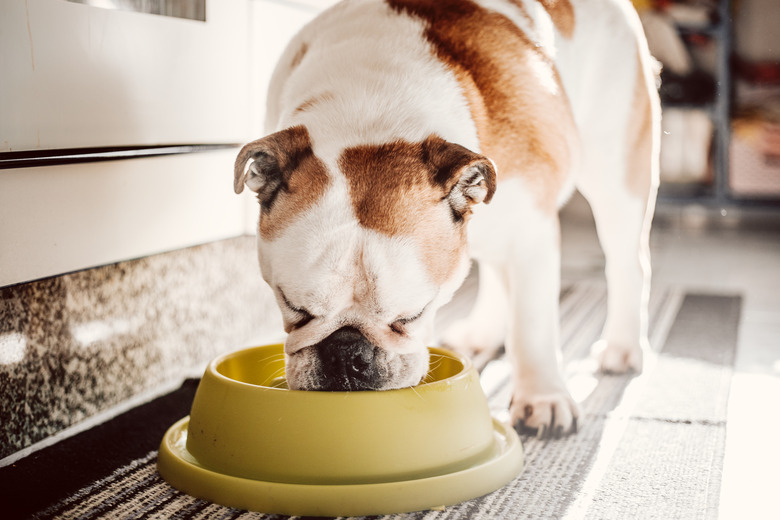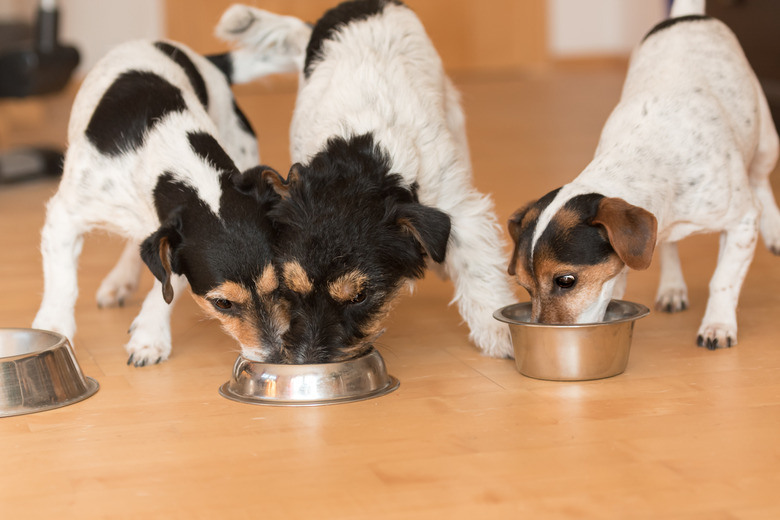Kidney Diet For Dogs: Nutrition For Dogs With Kidney Disease
When a dog has chronic kidney disease (CKD), the filtration of waste through their kidneys is reduced. Dogs with CKD, or chronic renal disease (sometimes called kidney failure), require a special, low-protein diet that does not promote further kidney deterioration and that does not overtax the functioning portion of the kidneys. If your pooch is suffering from this condition, you shouldn't decide what food to use without your veterinarian's guidance. There are many prescription kidney diets for dogs to meet your pet's health needs.
What foods are good for dogs with kidney disease?
What foods are good for dogs with kidney disease?
Dogs with kidney disease do best on foods that restrict protein and phosphorus and supplement potassium. These prescription diets (and treats) slow the progression of CKD and are available through your veterinarian. If you are looking for a kidney-safe treat that you might have at home, green beans with no added salt or an occasional raw carrot is fine to give.
Wet foods are also helpful because water is essential for proper hydration. It also helps the kidneys remove toxins from the blood. You can either add warm water to your dog's dry food or you can get canned renal diets. You should also provide lots of fresh water for your dog.
Your veterinarian may also recommend giving your dog certain supplements, like omega-3 fatty acids, either in their food or in addition to it. Your dog may also need B vitamin injections.
What foods should a dog with chronic kidney disease avoid?
What foods should a dog with chronic kidney disease avoid?
Dogs with CKD should avoid high-protein diets and pure protein treats. A food that's high in protein, like a whole chicken breast, creates more toxins that the kidneys have to filter. It's also good to note that high protein diets don't cause kidney failure. So, you shouldn't restrict a healthy older dog's protein content.
Dogs with kidney disease should also avoid treats and foods that are high in sodium. Products like jerky treats contain a lot of salt. Dogs with kidney disease can have hypertension, and a high-salt diet can worsen a pet's high blood pressure.
Home diets are not recommended for dogs with CKD because balancing nutrition can be tricky. A lot of science has gone into developing well-balanced prescription and/or commercial renal diets to support dogs with this illness. If caregivers want to cook a home diet for their dog, they should work with a veterinary nutritionist to create an appropriate diet. A directory of veterinary nutritionists can be found at the American College of Veterinary Nutrition. Do not follow diets found online because there is a lot of misinformation that could harm your dog. Raw diets are also not recommended because of the exposure to bacteria and possibly parasites, which can be a health risk for both humans and pets.
What are the benefits of a kidney diet for dogs?
What are the benefits of a kidney diet for dogs?
A specialized kidney diet supports your dog's renal health. Those benefits are:
- Restricted protein: Much of the metabolic waste that kidneys have to process comes from protein. Restricting protein reduces the buildup of waste products in the blood. However, you do not want to use a lower-protein food that does not contain high-quality protein sources. A certain level of protein that is easy to digest is needed for vital functions. The quality and amount of protein can also adversely affect the food's palatability, which means your dog may not want to eat it.
- Restricted phosphorus: Phosphorus is not properly eliminated when the kidneys are compromised, so reducing dietary phosphorus is necessary to keep its level in the blood balanced.
- Potassium: Kidney disease causes potassium loss. Potassium is essential for muscle strength and energy. Renal diets have added potassium to help offset the loss.
- Omega-3 fatty acids: Renal diets often have fish oils added to them because they contain omega-3 fatty acids. Omega-3s reduce inflammation in the body, including in the kidneys. In humans, it's been shown that omega-3s also help reduce protein being lost through the kidneys and reduce the associated kidney damage from this.
- B vitamins: Kidney diets have added B vitamins because dogs with CKD lose these essential nutrients through their damaged kidneys.
- Sodium: Dogs with CKD are prone to getting high blood pressure. A low-sodium pet food helps your dog's body maintain a reasonable blood pressure.
How to choose the right food for your dog
How to choose the right food for your dog
These days, dog parents have many choices in commercial dog foods and prescription dog foods designed specifically for pets with impaired kidney function. Your veterinarian probably sells at least one brand of prescription renal food made by brands such as Royal Canin, Eukanuba, or Hill's. It's best to choose a food based on your veterinarian's recommendation. They will let you know what your dog's dietary requirements are, especially if your pet has additional health conditions.
Your veterinarian will also let you know when it's time to start a special diet. This will be based on what your dog's bloodwork looks like, particularly a test called creatinine. Other blood values your veterinarian looks at to evaluate your pet's kidney health are blood urea nitrogen, calcium, phosphorus, electrolytes, SDMA, urinalysis results, and red blood cell count.
At some point, pet parents might notice their dog doesn't want to eat the special diet. If that happens, there are several things to consider. They might not be feeling well and may need additional medical care. Let your veterinarian know right away. If needed, they can prescribe a medication that stimulates your dog's appetite.
It's also possible that your pet may eat better if their bowl is closer to where they usually hang out. Walking to another area of the home to get to their food bowl may not be something they have the energy for. You can also offer a variety of different foods for your pet. These days, renal diets come in different flavors and consistencies. Set out a few different ones and see if your pet gravitates toward any in particular. Ultimately, the best dog food is the one your pet will eat.
The bottom line
The bottom line
Kidney disease in dogs affects about 0.5 to 1% of canines. These dogs need a special diet to slow the progression of kidney disease. Even though your dog's dietary protein will need to be restricted, it's still important that they eat high-quality protein with the right balance of other nutrients, like B vitamins and potassium. The best way to do this is with a prescription or commercial product that's already available. Your veterinarian is your best resource for helping you select the right diet for your dog. Dog parents who notice their pet isn't doing well at any point should contact their DVM right away. Ultimately, a pet's quality of life is the most important thing to consider.



